BIO AC Members BIOSketch
Spring 2024 BIO Advisory Committee Members
Dr. Henry L. Bart Jr.
 Henry L. "Hank" Bart Jr. is Professor of Ecology and Evolutionary Biology at Tulane University, and Director of the Tulane University Biodiversity Research Institute (TUBRI). A native New Orleans, Bart earned Bachelor of Science and Master of Science degrees in Biological Sciences from the University of New Orleans, and a Ph.D. in Zoology from the University of Oklahoma. Prior to joining the faculty of Tulane University (1992), Bart held faculty positions at the University of Illinois and Auburn University. Bart is Curator of the Royal D. Suttkus Fish Collection at TUBRI, the largest research collection of post-larval fishes in the world. Bart has also been involved in a number of biodiversity-related technology and cyberinfrastructure development projects at TUBRI, including the GEOLocate Project (software for geospatially referencing text descriptions of specimen collection locations), FishNet2 (a global network of 75 institutional fish collection databases), and HydroClim (modeled historical and future stream flow and temperature data for the U.S. and Canada). Bart has published over 90 scientific papers dealing with ecology and systematics of fishes and amphibians. Bart trains graduate students and teaches upper-level undergraduate and graduate courses in Ichthyology, Stream Ecology, Natural Resource Conservation and Biodiversity Informatics at Tulane. Bart is African American and has devoted considerable effort throughout his career to increasing minority participation in Ecology and Evolutionary Biology and STEM broadly. Bart is serving as the BIO AC Liaison to the Advisory Committee for Environmental Research and Education.
Henry L. "Hank" Bart Jr. is Professor of Ecology and Evolutionary Biology at Tulane University, and Director of the Tulane University Biodiversity Research Institute (TUBRI). A native New Orleans, Bart earned Bachelor of Science and Master of Science degrees in Biological Sciences from the University of New Orleans, and a Ph.D. in Zoology from the University of Oklahoma. Prior to joining the faculty of Tulane University (1992), Bart held faculty positions at the University of Illinois and Auburn University. Bart is Curator of the Royal D. Suttkus Fish Collection at TUBRI, the largest research collection of post-larval fishes in the world. Bart has also been involved in a number of biodiversity-related technology and cyberinfrastructure development projects at TUBRI, including the GEOLocate Project (software for geospatially referencing text descriptions of specimen collection locations), FishNet2 (a global network of 75 institutional fish collection databases), and HydroClim (modeled historical and future stream flow and temperature data for the U.S. and Canada). Bart has published over 90 scientific papers dealing with ecology and systematics of fishes and amphibians. Bart trains graduate students and teaches upper-level undergraduate and graduate courses in Ichthyology, Stream Ecology, Natural Resource Conservation and Biodiversity Informatics at Tulane. Bart is African American and has devoted considerable effort throughout his career to increasing minority participation in Ecology and Evolutionary Biology and STEM broadly. Bart is serving as the BIO AC Liaison to the Advisory Committee for Environmental Research and Education.
Dr. Barbara Beltz
 Dr. Barbara Beltz is the Allene Lummis Russell Professor in Neuroscience at Wellesley College, Wellesley, MA, where she served as Director of the Neuroscience Program from 1996-2016. She also is Lead Consultant to the Sherman Fairchild Foundation for their undergraduate scientific grants programs, and a Member of the Corporation at Woods Hole Oceanographic Institution. Dr. Beltz joined the faculty at Wellesley in 1987, after receiving her PhD from Princeton University (1979) and postdoctoral training in the Department of Neurobiology at Harvard Medical School. She has published over 90 peer-reviewed research articles, as well as two books. Her research interests focus on the relationship between the immune system and the nervous system, and specifically how the immune system is involved in the production of new neurons in the adult brain.
Dr. Barbara Beltz is the Allene Lummis Russell Professor in Neuroscience at Wellesley College, Wellesley, MA, where she served as Director of the Neuroscience Program from 1996-2016. She also is Lead Consultant to the Sherman Fairchild Foundation for their undergraduate scientific grants programs, and a Member of the Corporation at Woods Hole Oceanographic Institution. Dr. Beltz joined the faculty at Wellesley in 1987, after receiving her PhD from Princeton University (1979) and postdoctoral training in the Department of Neurobiology at Harvard Medical School. She has published over 90 peer-reviewed research articles, as well as two books. Her research interests focus on the relationship between the immune system and the nervous system, and specifically how the immune system is involved in the production of new neurons in the adult brain.
Dr. Thomas Daniel
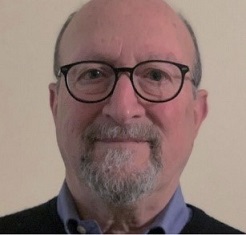 Dr. Thomas Daniel is the Joan and Richard Komen Endowed Chair in the Department of Biology at the University of Washington. He is a former MacArthur "genius" Fellowship awardee and Guggenheim Fellow. His research and teaching are at the confluence of neuroscience, engineering, computing, and biomechanics, as he and his mentees seek to understand the control and dynamics of movement in biology - from molecules to whole animals. In addition to his principal appointment in Washington's Department of Biology (of which he was the founding Chair), Dr. Daniel holds faculty appointments in four other departments at the University. He is a past winner of the University's Outstanding Teaching Award and the University's Outstanding Graduate Mentor Award. He sits on numerous science planning groups at the national level, including the National Science Foundation's Bio Directorate Advisory Committee, and is the U.S. representative to the international Council of Scientists for the Human Frontier Science Program. He also sits on the Boards of the Paul Allen Family Foundation and the Allen Institute.
Dr. Thomas Daniel is the Joan and Richard Komen Endowed Chair in the Department of Biology at the University of Washington. He is a former MacArthur "genius" Fellowship awardee and Guggenheim Fellow. His research and teaching are at the confluence of neuroscience, engineering, computing, and biomechanics, as he and his mentees seek to understand the control and dynamics of movement in biology - from molecules to whole animals. In addition to his principal appointment in Washington's Department of Biology (of which he was the founding Chair), Dr. Daniel holds faculty appointments in four other departments at the University. He is a past winner of the University's Outstanding Teaching Award and the University's Outstanding Graduate Mentor Award. He sits on numerous science planning groups at the national level, including the National Science Foundation's Bio Directorate Advisory Committee, and is the U.S. representative to the international Council of Scientists for the Human Frontier Science Program. He also sits on the Boards of the Paul Allen Family Foundation and the Allen Institute.
Dr. Erich Grotewold
 Dr. Erich Grotewold is the Professor and Chairperson of the Department of Biochemistry and Molecular Biology at Michigan State University. Prior to this, he was Director of the Arabidopsis Biological Resource Center (ABRC), and Director of the Center for Applied Plant Sciences (CAPS) at The Ohio State University. He got his B.Sc. in Chemistry and Ph.D. in Molecular Biology/Biochemistry at the University of Buenos Aires, Argentina. Following a 3-year postdoc at Cold Spring Harbor Labs, he became a Staff Investigator at the Labs. His research focuses on plant systems biology, and main research projects include understanding the control of plant gene expression, establishing the architecture of plant gene regulatory networks, engineering plant metabolism using transcription factors, studying the transport of phytochemicals, and identifying cellular targets of natural products in plants and animals. He is a Fellow of the American Association for the Advancement of Science since 2009.
Dr. Erich Grotewold is the Professor and Chairperson of the Department of Biochemistry and Molecular Biology at Michigan State University. Prior to this, he was Director of the Arabidopsis Biological Resource Center (ABRC), and Director of the Center for Applied Plant Sciences (CAPS) at The Ohio State University. He got his B.Sc. in Chemistry and Ph.D. in Molecular Biology/Biochemistry at the University of Buenos Aires, Argentina. Following a 3-year postdoc at Cold Spring Harbor Labs, he became a Staff Investigator at the Labs. His research focuses on plant systems biology, and main research projects include understanding the control of plant gene expression, establishing the architecture of plant gene regulatory networks, engineering plant metabolism using transcription factors, studying the transport of phytochemicals, and identifying cellular targets of natural products in plants and animals. He is a Fellow of the American Association for the Advancement of Science since 2009.
Dr. Matthew Hahn
 Dr. Matthew W. Hahn is a Distinguished Professor of Biology and Computer Science at Indiana University, where he has held a faculty position since 2005. He also directs IU's Center for Genomics and Bioinformatics. He earned his B.S. degree from Cornell University and obtained his Ph.D. from Duke University. He was an NSF postdoctoral fellow at the University of California, Davis before moving to Indiana. His research focuses on how evolution has shaped organismal and genomic diversity, and how adaptation is achieved using multiple different types of molecular changes. His lab couples empirical studies of genome sequences with the development of mathematical theory, new statistical models, and the implementation of open-source software. He has been the recipient of an NSF CAREER Award, a fellowship from the Alfred P. Sloan Foundation, the Margaret Dayhoff Award from the Society for Molecular Biology and Evolution, the Stebbins Medal from the International Association for Plant Taxonomy, and the Bicentennial Medal from Indiana University. He is an elected fellow of the American Association for the Advancement of Science.
Dr. Matthew W. Hahn is a Distinguished Professor of Biology and Computer Science at Indiana University, where he has held a faculty position since 2005. He also directs IU's Center for Genomics and Bioinformatics. He earned his B.S. degree from Cornell University and obtained his Ph.D. from Duke University. He was an NSF postdoctoral fellow at the University of California, Davis before moving to Indiana. His research focuses on how evolution has shaped organismal and genomic diversity, and how adaptation is achieved using multiple different types of molecular changes. His lab couples empirical studies of genome sequences with the development of mathematical theory, new statistical models, and the implementation of open-source software. He has been the recipient of an NSF CAREER Award, a fellowship from the Alfred P. Sloan Foundation, the Margaret Dayhoff Award from the Society for Molecular Biology and Evolution, the Stebbins Medal from the International Association for Plant Taxonomy, and the Bicentennial Medal from Indiana University. He is an elected fellow of the American Association for the Advancement of Science.
Dr. Michael Ibba, (Chair)
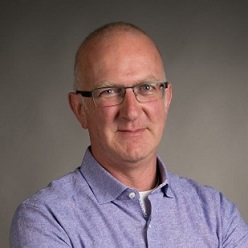 Dr. Michael Ibba is the dean of Schmid College of Science and Technology at Chapman University. He was previously the Chair of the Microbiology Department and served as the Associate Director for the Infectious Disease Institute at The Ohio State University, where he taught for 19 years. He received his Ph.D. in Biochemistry and Applied Molecular Biology from the University of Manchester and came to the United States as an Associate Research Scientist at Yale University. He has published over 190 research articles and currently holds four research grants. Dr. Ibba has received several awards and distinctions. Notably, in 2019 he received the Distinguished Scholar Award at The Ohio State University and in 2017 and 2020 received the Faculty Award for Diversity Enhancement in the College of Arts and Sciences. He is a fellow of the American Academy of Microbiology and the American Association for the Advancement of Science.
Dr. Michael Ibba is the dean of Schmid College of Science and Technology at Chapman University. He was previously the Chair of the Microbiology Department and served as the Associate Director for the Infectious Disease Institute at The Ohio State University, where he taught for 19 years. He received his Ph.D. in Biochemistry and Applied Molecular Biology from the University of Manchester and came to the United States as an Associate Research Scientist at Yale University. He has published over 190 research articles and currently holds four research grants. Dr. Ibba has received several awards and distinctions. Notably, in 2019 he received the Distinguished Scholar Award at The Ohio State University and in 2017 and 2020 received the Faculty Award for Diversity Enhancement in the College of Arts and Sciences. He is a fellow of the American Academy of Microbiology and the American Association for the Advancement of Science.
Dr. Wallace Marshall
 Wallace Marshall is Professor of Biochemistry and Biophysics at the University of California San Francisco. A native LongâIslander, he received bachelor's degrees in Electrical Engineering and Biochemistry from the State University of New York at Stony Brook, and his Ph.D. in Biochemistry from UC San Francisco, where he studied organization of chromosomes within the nucleus with John Sedat. He then moved to Yale University for postdoctoral studies with Joel Rosenbaum, where he became interested in questions of organelle size control and cell organization, using cilia, flagella, and centrioles as model systems. In 2003, he joined the faculty at UC San Francisco where he continues to study questions of cellular organization in a variety of model organisms including green algae, yeast, ciliates, and mammalian cells. In recent years, his research program has expanded to include cellular engineering and the study of learning and computation in single cells. Dr. Marshall is an elected Fellow of the American Society for Cell Biology, former coâdirector of the Physiology summer course at the Marine Biological Laboratory in Woods Hole, Massachusetts, and he currently is Director of the Center for Cellular Construction, an NSF Science and Technology Center (STC) devoted to engineering cells and tissues.
Wallace Marshall is Professor of Biochemistry and Biophysics at the University of California San Francisco. A native LongâIslander, he received bachelor's degrees in Electrical Engineering and Biochemistry from the State University of New York at Stony Brook, and his Ph.D. in Biochemistry from UC San Francisco, where he studied organization of chromosomes within the nucleus with John Sedat. He then moved to Yale University for postdoctoral studies with Joel Rosenbaum, where he became interested in questions of organelle size control and cell organization, using cilia, flagella, and centrioles as model systems. In 2003, he joined the faculty at UC San Francisco where he continues to study questions of cellular organization in a variety of model organisms including green algae, yeast, ciliates, and mammalian cells. In recent years, his research program has expanded to include cellular engineering and the study of learning and computation in single cells. Dr. Marshall is an elected Fellow of the American Society for Cell Biology, former coâdirector of the Physiology summer course at the Marine Biological Laboratory in Woods Hole, Massachusetts, and he currently is Director of the Center for Cellular Construction, an NSF Science and Technology Center (STC) devoted to engineering cells and tissues.
Dr. C. Robertson McClung
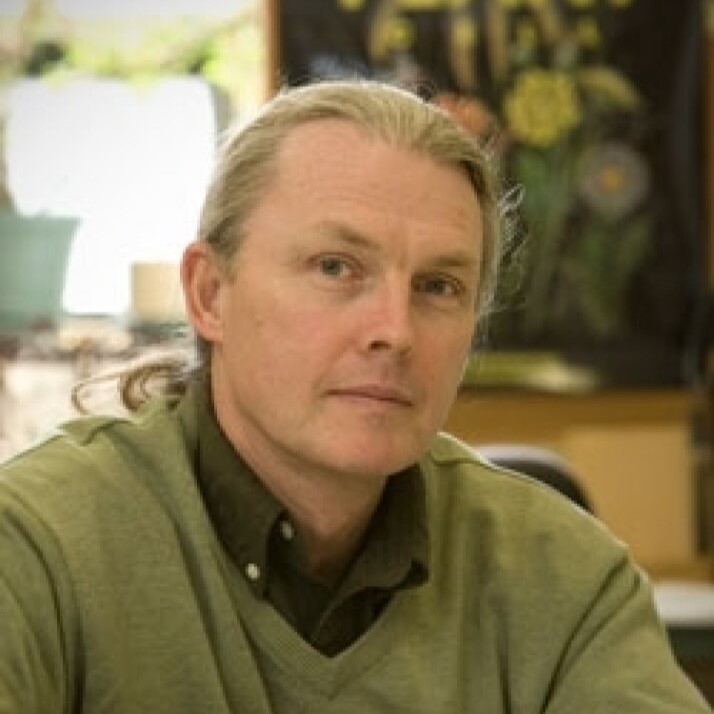 Dr. C. Robertson McClung is the Patricia F. and William B. Hale 1944 Professor in the Arts and Science sat Dartmouth College, where he has been a member of the Department of Biological Sciences since 1988. From 2004 through 2009 he served as Associate Dean for the Sciences. His research focuses on the basis of endogenous biological clocks, now emphasizing the model plant, Arabidopsis thaliana. His teaching has focused on genetics and molecular biology and he has taught both introductory genetics to first year students and senior seminars based on the primary literature. McClung has published more than 85 articles and his work is funded by major grants from the National Science Foundation. In his lab at Dartmouth he has trained over 95 undergraduates, 17 of whom have completed honors theses with him. In addition, he has served on the thesis committees of an additional 75 undergraduates. At Dartmouth he has served on and chaired numerous councils and committees, including the Molecular and Cellular Biology Graduate Committee, which administers the largest graduate program at Dartmouth. He has served on numerous competitive grant panels for the NSF, NIH and USDA. In 2009 he was elected as a Fellow of that Society. In 2010 he was elected a Fellow of the American Association for the Advancement of Science.
Dr. C. Robertson McClung is the Patricia F. and William B. Hale 1944 Professor in the Arts and Science sat Dartmouth College, where he has been a member of the Department of Biological Sciences since 1988. From 2004 through 2009 he served as Associate Dean for the Sciences. His research focuses on the basis of endogenous biological clocks, now emphasizing the model plant, Arabidopsis thaliana. His teaching has focused on genetics and molecular biology and he has taught both introductory genetics to first year students and senior seminars based on the primary literature. McClung has published more than 85 articles and his work is funded by major grants from the National Science Foundation. In his lab at Dartmouth he has trained over 95 undergraduates, 17 of whom have completed honors theses with him. In addition, he has served on the thesis committees of an additional 75 undergraduates. At Dartmouth he has served on and chaired numerous councils and committees, including the Molecular and Cellular Biology Graduate Committee, which administers the largest graduate program at Dartmouth. He has served on numerous competitive grant panels for the NSF, NIH and USDA. In 2009 he was elected as a Fellow of that Society. In 2010 he was elected a Fellow of the American Association for the Advancement of Science.
Dr. B. Gail McLean
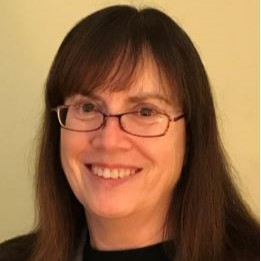 Dr. McLean is the Team Lead for the Photochemistry and Biochemistry team in the Chemical Sciences, Geosciences and Biosciences (CSGB) Division of DOE's Office of Basic Energy Sciences (BES). She is also currently the acting Program Manager for the BES Physical Biosciences program which supports fundamental research on energy capture, conversion, and storage in plants and microbes. She previously served as the Acting Division Director for the CSGB Division and as the Program Manager for the BES Photosynthetic Systems program which supports fundamental research on natural photosynthesis. Her professional career has been primarily dedicated to federal scientific program management and leadership. Her Ph.D. is in plant molecular genetics and her prior research includes studies of plant cytoskeletal proteins, Agrobacterium signaling mechanisms, and plasmodesmata/cell-to-cell transport. Prior to joining DOE in 2008, she was a National Program Leader in the USDA's Cooperative State Research, Education, and Extension Service (now the National Institute of Food and Agriculture) where she led multiple basic research competitive programs in plant science. At USDA, Dr. McLean also served as the Acting Integrated Programs Director which included oversight of the SBIR program. At DOE, Dr. McLean has managed projects in all BES funding modalities - core program, Energy Frontier Research Centers (EFRCs), and the Fuels from Sunlight Energy Innovation Hub.
Dr. McLean is the Team Lead for the Photochemistry and Biochemistry team in the Chemical Sciences, Geosciences and Biosciences (CSGB) Division of DOE's Office of Basic Energy Sciences (BES). She is also currently the acting Program Manager for the BES Physical Biosciences program which supports fundamental research on energy capture, conversion, and storage in plants and microbes. She previously served as the Acting Division Director for the CSGB Division and as the Program Manager for the BES Photosynthetic Systems program which supports fundamental research on natural photosynthesis. Her professional career has been primarily dedicated to federal scientific program management and leadership. Her Ph.D. is in plant molecular genetics and her prior research includes studies of plant cytoskeletal proteins, Agrobacterium signaling mechanisms, and plasmodesmata/cell-to-cell transport. Prior to joining DOE in 2008, she was a National Program Leader in the USDA's Cooperative State Research, Education, and Extension Service (now the National Institute of Food and Agriculture) where she led multiple basic research competitive programs in plant science. At USDA, Dr. McLean also served as the Acting Integrated Programs Director which included oversight of the SBIR program. At DOE, Dr. McLean has managed projects in all BES funding modalities - core program, Energy Frontier Research Centers (EFRCs), and the Fuels from Sunlight Energy Innovation Hub.
Dr. Maria Pellegrini
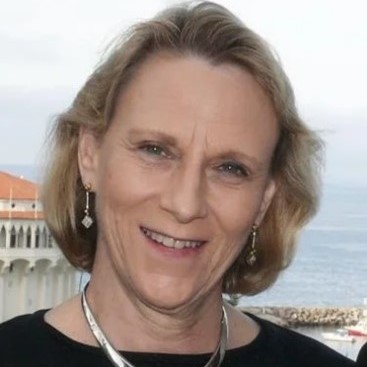 Dr. Maria Pellegrini is Executive Director of Programs at the W. M. Keck Foundation in Los Angeles. From 2004 to 2008 she served as Vice President for Research at Brandeis University where she was responsible for research infrastructure, grants and contracts university-wide, including oversight of a $154 million science complex renewal project involving the design and construction of two new science buildings and major renovations in others. Dr. Pellegrini was the recipient of an Alfred P. Sloan Foundation Fellowship and designated a Teacher-Scholar by the Camille and Henry Dreyfus Foundation, and has served as a consultant to the Howard Hughes Medical Institute. Her research interests were in the area of the molecular mechanisms of protein synthesis and transcriptional regulation of ribosomal RNA genes.
Dr. Maria Pellegrini is Executive Director of Programs at the W. M. Keck Foundation in Los Angeles. From 2004 to 2008 she served as Vice President for Research at Brandeis University where she was responsible for research infrastructure, grants and contracts university-wide, including oversight of a $154 million science complex renewal project involving the design and construction of two new science buildings and major renovations in others. Dr. Pellegrini was the recipient of an Alfred P. Sloan Foundation Fellowship and designated a Teacher-Scholar by the Camille and Henry Dreyfus Foundation, and has served as a consultant to the Howard Hughes Medical Institute. Her research interests were in the area of the molecular mechanisms of protein synthesis and transcriptional regulation of ribosomal RNA genes.
Dr. Pamela S. Soltis
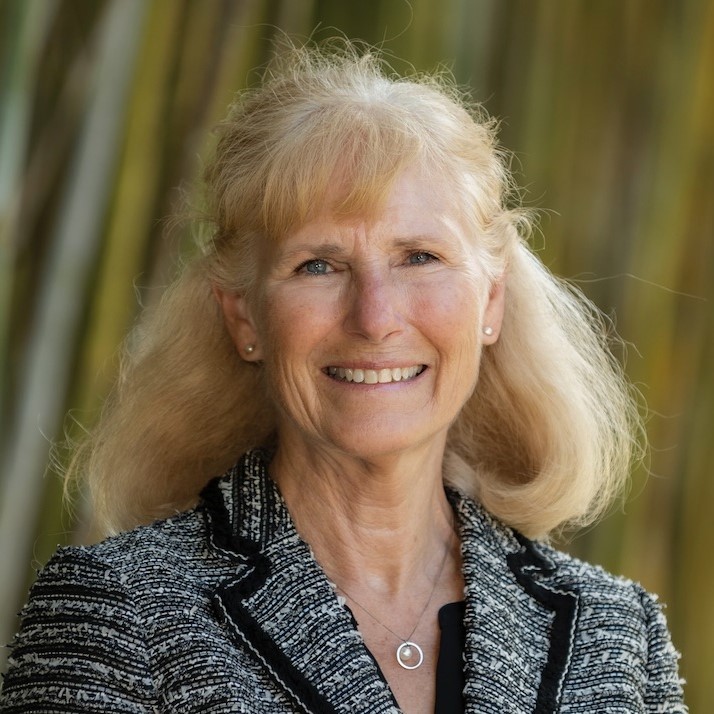 Dr. Pamela S. Soltis is a Distinguished Professor and Curator at the Florida Museum of Natural History at the University of Florida, where she has served on the faculty since 2000 after 15 years at Washington State University. She is also Director of the UF Biodiversity Institute and Director of Research for iDigBio, the NSF-sponsored National Coordinating Center for Biodiversity Collections. She holds a B.A. degree from Central College in Pella, Iowa, and a Ph.D. from the University of Kansas. Her research addresses patterns and processes of plant evolution, spanning genomic to landscape scales, with applications for biodiversity assessment, conservation, and agriculture. She was named to the University of Kansas Womenâs Hall of Fame and has received the R. Dahlgren International Prize in Botany, the Stebbins Medal from the International Association for Plant Taxonomy, the Asa Gray Award from the American Society of Plant Taxonomists, the Botanical Society of America Merit Award, the Darwin-Wallace Medal from the Linnean Society of London, and the Southeastern University Research Association Distinguished Scientist Award. She was selected as the Professor of the Year in the Southeastern Conference and is an elected fellow of the American Association for the Advancement of Science and an elected member of the American Academy of Arts and Sciences and the National Academy of Sciences, where she serves as Secretary of Class II, Biological Sciences.
Dr. Pamela S. Soltis is a Distinguished Professor and Curator at the Florida Museum of Natural History at the University of Florida, where she has served on the faculty since 2000 after 15 years at Washington State University. She is also Director of the UF Biodiversity Institute and Director of Research for iDigBio, the NSF-sponsored National Coordinating Center for Biodiversity Collections. She holds a B.A. degree from Central College in Pella, Iowa, and a Ph.D. from the University of Kansas. Her research addresses patterns and processes of plant evolution, spanning genomic to landscape scales, with applications for biodiversity assessment, conservation, and agriculture. She was named to the University of Kansas Womenâs Hall of Fame and has received the R. Dahlgren International Prize in Botany, the Stebbins Medal from the International Association for Plant Taxonomy, the Asa Gray Award from the American Society of Plant Taxonomists, the Botanical Society of America Merit Award, the Darwin-Wallace Medal from the Linnean Society of London, and the Southeastern University Research Association Distinguished Scientist Award. She was selected as the Professor of the Year in the Southeastern Conference and is an elected fellow of the American Association for the Advancement of Science and an elected member of the American Academy of Arts and Sciences and the National Academy of Sciences, where she serves as Secretary of Class II, Biological Sciences.
Dr. Paul Turner
 Dr. Paul Turner is the Elihu Professor of Ecology and Evolutionary Biology at Yale University, and faculty member in Microbiology at Yale School of Medicine. He studies the evolutionary genetics of viruses, particularly bacteriophages that specifically infect bacterial pathogens, and RNA viruses that are vector-transmitted by mosquitoes. His service to the profession includes Chair of the American Society for Microbiology (ASM) Division on Evolutionary and Genomic Microbiology, as well as membership on the National Science Foundation's Biological Sciences Advisory Committee, ASM Committee on Minority Education, and multiple National Research Council advisory committees. Dr. Turner was elected to the National Academy of Sciences, Fellow of the American Academy of Arts & Sciences, Fellow of the American Academy of Microbiology, Councilor of the American Genetic Association, Chair of the Gordon Research Conference on Microbial Population Biology, and Chair of the CNRS Jacques Monod Conference on Viral Emergence. He chaired the Watkins Graduate Research Fellowship award committee for ASM, and received the E.E. Just Endowed Research Fellowship and William Townsend Porter Award from Marine Biological Laboratory, and fellowships from Woodrow Wilson Foundation, NSF, NIH and HHMI. Dr. Turner has served as Director of Graduate Studies and as Chair of the Ecology and Evolutionary Biology Department at Yale, as well as Yale's Dean of Science and Chair of the Biological Sciences Tenure Promotion Committee.
Dr. Paul Turner is the Elihu Professor of Ecology and Evolutionary Biology at Yale University, and faculty member in Microbiology at Yale School of Medicine. He studies the evolutionary genetics of viruses, particularly bacteriophages that specifically infect bacterial pathogens, and RNA viruses that are vector-transmitted by mosquitoes. His service to the profession includes Chair of the American Society for Microbiology (ASM) Division on Evolutionary and Genomic Microbiology, as well as membership on the National Science Foundation's Biological Sciences Advisory Committee, ASM Committee on Minority Education, and multiple National Research Council advisory committees. Dr. Turner was elected to the National Academy of Sciences, Fellow of the American Academy of Arts & Sciences, Fellow of the American Academy of Microbiology, Councilor of the American Genetic Association, Chair of the Gordon Research Conference on Microbial Population Biology, and Chair of the CNRS Jacques Monod Conference on Viral Emergence. He chaired the Watkins Graduate Research Fellowship award committee for ASM, and received the E.E. Just Endowed Research Fellowship and William Townsend Porter Award from Marine Biological Laboratory, and fellowships from Woodrow Wilson Foundation, NSF, NIH and HHMI. Dr. Turner has served as Director of Graduate Studies and as Chair of the Ecology and Evolutionary Biology Department at Yale, as well as Yale's Dean of Science and Chair of the Biological Sciences Tenure Promotion Committee.
Dr. María Uriarte
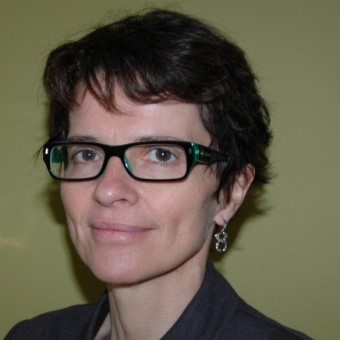 Dr. María Uriarte is a Professor in the Department of Ecology, Evolution and Environmental Biology at Columbia University. She also is a member of the Earth Institute at Columbia and serves as affiliate faculty in the Dept. of Statistics at Columbia and adjunct faculty in the Dept. of Ecology, University of São Paulo, Brazil. Uriarte studies the processes that drive forest dynamics in tropical regions, with a focus on forest recovery after extreme weather events (e.g., hurricanes) and from human land use, and the consequences of these dynamics for ecosystem services. She explores these questions using a range of approaches and tools. Her current projects are based in Puerto Rico and Brazil and she has also worked in Chile, Peru, and Costa Rica. Her work has been recognized with a Leopold Leadership Fellowship from the Woods Institute for the Environment, Stanford University and a Science without Borders Fellowship from the Brazilian government. Uriarte received an M.S. in Environmental Studies from Yale University, and her Ph.D. in Ecology from Cornell University. Before arriving at Columbia in 2005, she was a National Science Foundation postdoctoral research fellow at the Cary Institute of Ecosystem Studies in Millbrook, NY. Uriarte and her students have published more than 170 papers and her work has been featured in multiple media outlets including the New York Times, CNN, PBS and others.
Dr. María Uriarte is a Professor in the Department of Ecology, Evolution and Environmental Biology at Columbia University. She also is a member of the Earth Institute at Columbia and serves as affiliate faculty in the Dept. of Statistics at Columbia and adjunct faculty in the Dept. of Ecology, University of São Paulo, Brazil. Uriarte studies the processes that drive forest dynamics in tropical regions, with a focus on forest recovery after extreme weather events (e.g., hurricanes) and from human land use, and the consequences of these dynamics for ecosystem services. She explores these questions using a range of approaches and tools. Her current projects are based in Puerto Rico and Brazil and she has also worked in Chile, Peru, and Costa Rica. Her work has been recognized with a Leopold Leadership Fellowship from the Woods Institute for the Environment, Stanford University and a Science without Borders Fellowship from the Brazilian government. Uriarte received an M.S. in Environmental Studies from Yale University, and her Ph.D. in Ecology from Cornell University. Before arriving at Columbia in 2005, she was a National Science Foundation postdoctoral research fellow at the Cary Institute of Ecosystem Studies in Millbrook, NY. Uriarte and her students have published more than 170 papers and her work has been featured in multiple media outlets including the New York Times, CNN, PBS and others.
Dr. Kennedy S. Wekesa
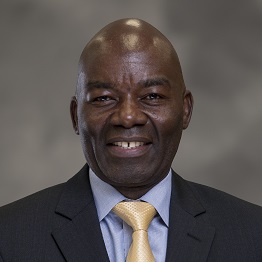 Dr. Kennedy S. Wekesa serves as the Associate Provost for Academic Affairs at Alabama State University. Prior to this appointment he served as the Dean of the College of Science, Technology, Engineering and Mathematics. He holds a faculty appointment in the Department of Biological Sciences. Over the years, he has been involved in several initiatives aimed at increasing the number of undergraduate and high school minority students participating in STEM with the goal of strengthening their interest to continue on to graduate programs. His research focuses on pheromone recognition and signal transduction in the mammalian vomeronasal organ and the role of pheromones in regulating reproductive and aggressive behaviors. He received his B.S. in Biology from Guilford College, an M.A. in Biology from the University of North Carolina at Greensboro and his Ph.D. in Zoology from North Carolina State University.
Dr. Kennedy S. Wekesa serves as the Associate Provost for Academic Affairs at Alabama State University. Prior to this appointment he served as the Dean of the College of Science, Technology, Engineering and Mathematics. He holds a faculty appointment in the Department of Biological Sciences. Over the years, he has been involved in several initiatives aimed at increasing the number of undergraduate and high school minority students participating in STEM with the goal of strengthening their interest to continue on to graduate programs. His research focuses on pheromone recognition and signal transduction in the mammalian vomeronasal organ and the role of pheromones in regulating reproductive and aggressive behaviors. He received his B.S. in Biology from Guilford College, an M.A. in Biology from the University of North Carolina at Greensboro and his Ph.D. in Zoology from North Carolina State University.


